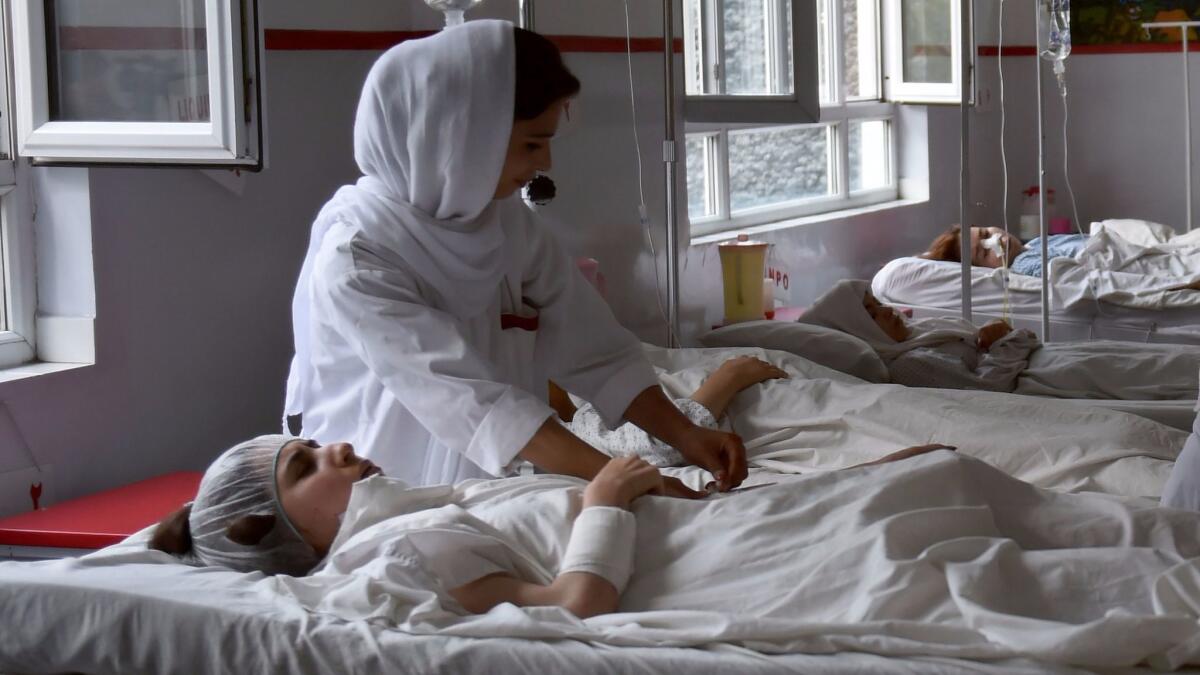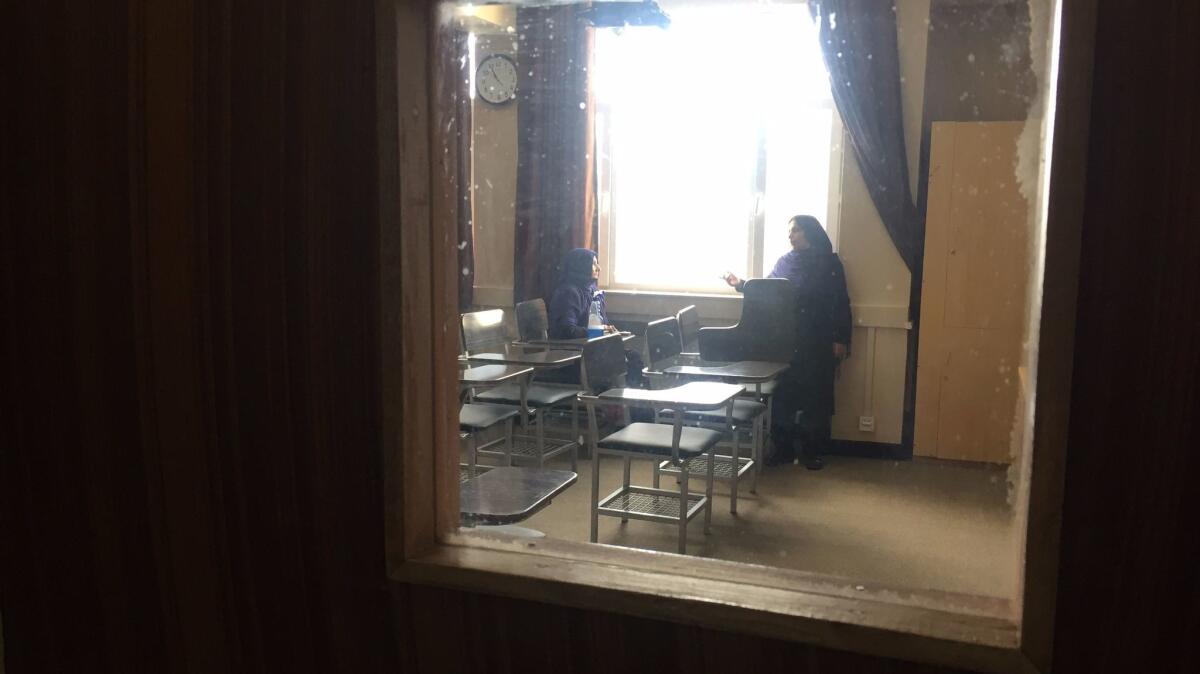Their university was hit by a devastating terror attack. Now these Afghan students are returning to school

Seven months after an insurgent attack shattered their oasis in one of the world’s most turbulent capitals, students are expected to return to classes Tuesday at a more heavily secured American University of Afghanistan.
The main campus and a second compound have been fortified with concrete T-walls for blast protection and bulletproof gates, and buildings that were attacked last summer have been outfitted with steel doors, along with fresh desks, white boards and carpets.
For the record:
4:39 p.m. April 25, 2024An earlier version of this article said the main campus of American University of Afghanistan would reopen in summer. It is scheduled to reopen this month. Classes at a smaller university compound are expected to start Tuesday, not Saturday. Also, both the main campus and the smaller compound have been fortified against attack, but only the main campus has had steel doors installed.
Perhaps the biggest change is that private security guards, which were banned in Afghanistan in 2010 to curb the misuse of weapons, will patrol the campus in western Kabul under a special arrangement with the government.
The measures are meant to protect what had been seen as one of Afghanistan’s safest enclaves — an American-style, coeducational private university with more than 1,700 students.
“We are committed to the Afghan people and we are dedicated to providing quality education to our students,” said Zubaida Akbar, the university’s communications director. “That’s why we are coming back and we are coming back stronger.”
Last August, while classes were in session one evening, a suicide bomber and two gunmen stormed the U.S.-funded university and killed 13 people — seven students, a lecturer, two security guards and three members of the Afghan security forces. The university was closed immediately.
No group claimed responsibility, but the university’s acting president, David Sedney, and others, blamed Taliban militants.
The university, established a decade ago with funding from the U.S. Agency for International Development, which also financed many of the recent security improvements, has stood as one of the more benign symbols of American involvement in Afghanistan since the 2001 U.S.-led military invasion.

More than 90% of students receive some form of financial aid and 40% have full scholarships.
As security conditions worsened in recent years following the withdrawal of most American and international troops in 2014, the university became a bigger target. Two weeks before the August attack, two staff members — an American and an Australian — were kidnapped from their car, and their whereabouts are still not publicly known.
Roya Mahtabi, a psychologist who has been meeting with students and staff members over the past two months, said some have acknowledged emotional scars left by the attack. Some staff members say they find themselves avoiding certain buildings or pathways as they ready for the resumption of classes, she said.
Among the most traumatized were janitorial staff members, many of whom were not on campus during the attack but were called to the scene the next day to clean up the bloodied site, Mahtabi said.
In the months since the attack, administrators have tried to keep students engaged in learning. They launched an online semester in which more than half the students participated, and solicited feedback on a new university logo. The debate team traveled to India for a tournament in October. Law students placed second among 17 universities at a moot court competition last month in Kuwait.
Farahnaz Roman, a law student and moot court team member, said she was gratified to continue her education while classes were suspended.
“I wanted to show that the incident doesn’t affect our program and our plans,” she said.
The 22-year-old Roman, who lived as a refugee in Pakistan as a teenager, said her heart sank when she received an email shortly after the attack saying the school would be closed until further notice.
“It was a shock to me and my friends, because we had no idea what would happen to us,” Roman said. “I’m in my last semester and others are in the middle of their studies.”
Students emailed and called teachers and administrators constantly, waiting for classes to resume. Some students withdrew but the vast majority plan to return for a full, 16-week semester, Akbar said.
Following the attack, some former staff members said they had expressed concerns about lax security, including a lack of concrete walls around the campus like those ringing most high-profile buildings in Kabul. Along with the new walls, administrators said the university’s security personnel will work more closely with Afghan and international government agencies to share information about possible threats.
In 2010, then-Afghan President Hamid Karzai banned private security firms, establishing a security unit under the interior ministry to guard paying companies and institutions. That unit, the Afghan Public Protection Force, had members guarding the campus at the time of the attack.
Karzai’s successor, President Ashraf Ghani, has issued a waiver allowing the university to hire a private security force, Sedney said.
Law student Ahmad Karimi, 25, said he expects trauma suffered by students to be temporary.
“Terrorists can strike anywhere, anytime, even the most secure places,” he said. “So if death is in our fate, there is no way to escape. So it is better not to think about it.”
Special correspondent Faizy reported from Kabul and Times staff writer Bengali from Mumbai, India.
Follow @SBengali on Twitter for more news from South Asia
ALSO
A brazen political killing shakes Myanmar, already teetering on the path to democracy
Pakistan holds its first census in 19 years, but not everyone is ready to be counted
Here’s one country where hard-liners might not be poised for election success: Iran
More to Read
Start your day right
Sign up for Essential California for news, features and recommendations from the L.A. Times and beyond in your inbox six days a week.
You may occasionally receive promotional content from the Los Angeles Times.







